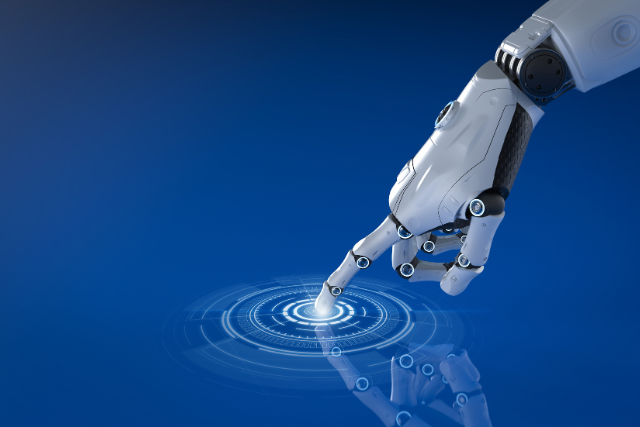The Institute of Electrical and Electronics Engineers (IEEE) is a global organization dedicated to advancing technological innovation and excellence. Known primarily for its leadership in engineering, technology, and computing, IEEE has also become a key player in promoting the understanding and application of artificial intelligence (AI) in healthcare.
IEEE’s educational programs and certifications are designed to meet the needs of professionals working in AI-driven industries, including healthcare. With AI revolutionizing healthcare through improved diagnostics, treatment planning, and data analytics, IEEE offers courses that equip professionals with the knowledge and skills needed to implement AI technologies effectively. These certifications are internationally recognized and valuable for engineers, IT professionals, and healthcare providers involved in healthcare technology and innovation.
Key Course: AI and Machine Learning in Healthcare
One of IEEE’s most popular offerings in this domain is the AI and Machine Learning in Healthcare course. This course is specifically tailored to help professionals understand how AI, particularly machine learning (ML), is being used to transform the healthcare industry. From medical imaging to AI-driven decision support systems, the course offers in-depth insights into the technical aspects of AI applications in healthcare, making it a valuable resource for those seeking to bridge the gap between technology and medicine.
Course Overview
- Machine Learning in Healthcare: The course introduces participants to the fundamentals of machine learning and its applications in healthcare. Topics covered include supervised and unsupervised learning, deep learning, and how these models are applied to analyze healthcare data, identify patterns, and improve clinical decision-making.
- Medical Imaging and AI: A key focus of the course is AI’s role in medical imaging. Machine learning algorithms, particularly in deep learning, have proven to be highly effective in interpreting complex medical images such as X-rays, MRIs, and CT scans. This section of the course explores how AI is improving diagnostic accuracy, reducing human error, and accelerating the time to diagnosis.
- AI-Driven Decision Support Systems: The course also covers AI’s role in clinical decision support systems (CDSS). AI-powered CDSS are used to assist healthcare providers in making more informed decisions by analyzing patient data, predicting outcomes, and recommending evidence-based treatment options. Participants will learn about real-world case studies where AI-driven CDSS have improved patient outcomes and operational efficiency in healthcare settings.
- Ethics and Privacy in AI Healthcare: Given the sensitive nature of healthcare data, the course addresses the ethical and privacy concerns surrounding AI. It covers topics such as patient data security, the importance of bias-free algorithms, and regulatory compliance (e.g., HIPAA and GDPR) in healthcare AI implementations.
Accreditation and Certification
IEEE certifications are internationally recognized and provide professionals with a strong credential that demonstrates their proficiency in both AI technologies and their applications in healthcare.
- Widely Recognized Certification: IEEE certifications are respected across industries, including healthcare and technology. Earning an IEEE certification in AI and Machine Learning in Healthcare signals that a professional has acquired the technical expertise needed to integrate AI into healthcare environments effectively.
- Continuous Professional Development: IEEE certifications are not only valuable for demonstrating expertise, but they also count towards continuing professional development (CPD) credits. This makes them particularly valuable for professionals in healthcare and technology fields who need to stay up-to-date with evolving trends and technologies.
Why Choose IEEE’s AI and Machine Learning in Healthcare Course?
- Technical Depth: The AI and Machine Learning in Healthcare course is designed to provide a deep technical understanding of how AI is applied in the healthcare sector. This makes it an excellent choice for professionals with a background in technology or engineering who want to specialize in healthcare applications.
- Real-World Applications: The course emphasizes the real-world applications of AI, with case studies and examples of how AI is transforming diagnostics, medical imaging, and treatment planning. This practical approach ensures that participants can apply their knowledge to actual healthcare settings.
- Ethical and Regulatory Focus: The healthcare industry is heavily regulated, and any AI implementation must comply with strict privacy and ethical standards. The course addresses these concerns, ensuring that professionals not only understand how to implement AI but also how to do so responsibly and in compliance with regulatory frameworks like HIPAA in the U.S. and GDPR in Europe.
Cost and Platform
IEEE courses are offered on a paid basis, with flexible learning options to accommodate professionals’ schedules. The AI and Machine Learning in Healthcare course is delivered through the IEEE Learning Network, an online platform that provides participants with access to self-paced modules, interactive case studies, and opportunities for peer collaboration.
- Cost: The pricing for the AI and Machine Learning in Healthcare course varies based on membership status. IEEE members often receive discounted rates for courses, while non-members can pay a standard fee for course access. The investment in this course can be seen as a way to gain a competitive edge in the healthcare technology space.
- Platform: The course is available through the IEEE Learning Network, a user-friendly online platform that allows professionals to engage with course materials at their own pace. Participants can access lectures, assignments, and assessments online, ensuring flexibility in learning.
Additional IEEE AI Certifications and Courses in Healthcare
In addition to the AI and Machine Learning in Healthcare course, IEEE offers several other certifications that focus on different aspects of AI and its applications in healthcare and technology. These include:
- Deep Learning for Healthcare Applications: This advanced course focuses specifically on deep learning techniques and how they are applied to medical imaging, genomic research, and predictive healthcare models.
- AI for Healthcare Operations and Analytics: This course explores how AI can be used to optimize healthcare operations, such as hospital management, patient scheduling, and resource allocation. It includes a focus on predictive analytics and machine learning for improving operational efficiency.
- AI and Healthcare Data Privacy: This specialized course covers the intersection of AI and healthcare data privacy, addressing the ethical challenges of using AI in a heavily regulated industry. It includes topics like data anonymization, secure data sharing, and how to design AI systems that are compliant with healthcare regulations.
Why IEEE Certifications Matter in Healthcare Technology
IEEE’s certifications are particularly valuable for healthcare professionals, IT specialists, and engineers involved in the deployment of AI technologies within the healthcare sector. As healthcare organizations increasingly adopt AI to improve clinical and operational outcomes, professionals with an IEEE certification in AI and healthcare are in a strong position to lead these initiatives.
To learn more and enroll in the AI and Machine Learning in Healthcare course or other IEEE certifications, visit: IEEELearning Network.




